What would happen if some of history’s famous philosophers were alive today and tried to spread their ideas via Internet memes?
I tried to answer this question by translating some of the major ideas of five famous philosophers into Matrix Morpheus memes.
For your amusement and education, here’s what might happen if five great philosophers took to the Interwebz.
1. Søren Kierkegaard
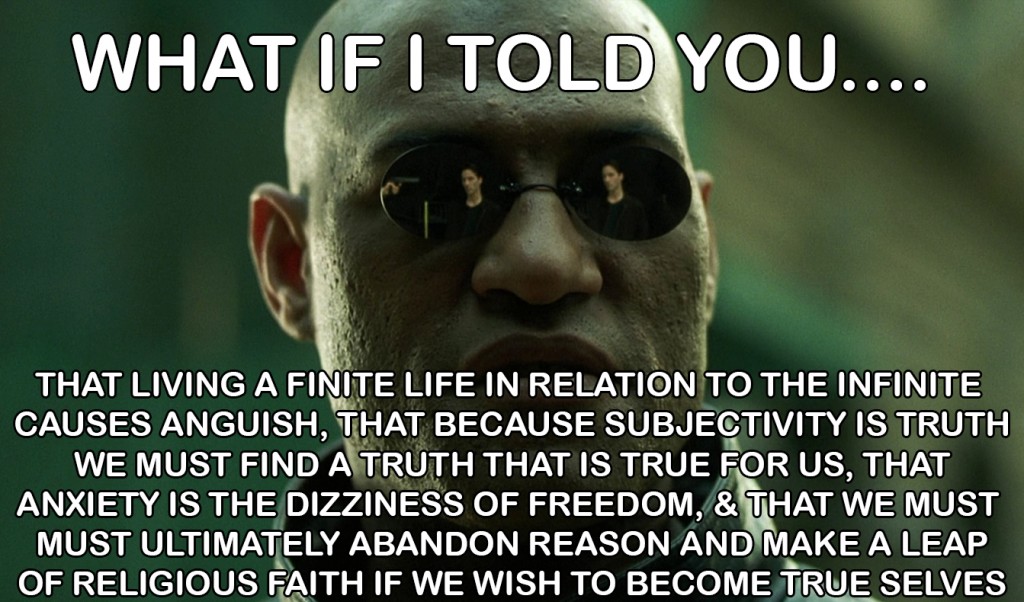

Søren Kierkegaard is widely considered to be the father of existentialism, which mostly means that he was the first Western philosopher to really hone in on the individual predicament of the suffering caused by being a finite, self-aware being in an unknowable, infinite void.
Kierkegaard was interested in the question of how an individual should navigate this predicament to realize a meaningful life and an authentic self. Ultimately, and as the meme says, he concluded that reason ought to be abandoned in favor of making a leap of religious leap of faith, and that one ought to seek a truth that can be true for oneself, not necessarily an “objective” truth, which Kierkegaard thought was inaccessible.
Kierkegaard is such a complicated and interesting philosopher, and, as with all of the philosophers in this post, he certainly can’t be summed up in a few short blurbs. I hope you’ll treat this post as a launching-off point for further research if any of these philosophers really appeal to you.
 For more on Kierkegaard, I recommend:
For more on Kierkegaard, I recommend:
- reading the pages about him on Wikipedia and the Stanford Encyclopedia of Philosophy
- reading the many comics about him on Existential Comics
- watching the School of Life’s introduction to Kierkegaard
- reading his book, Either/Or: A Fragment of Life, or other works of his (though I only recommend this for advanced students of philosophy who are well-versed in reading dense, difficult texts)
2. Henry David Thoreau
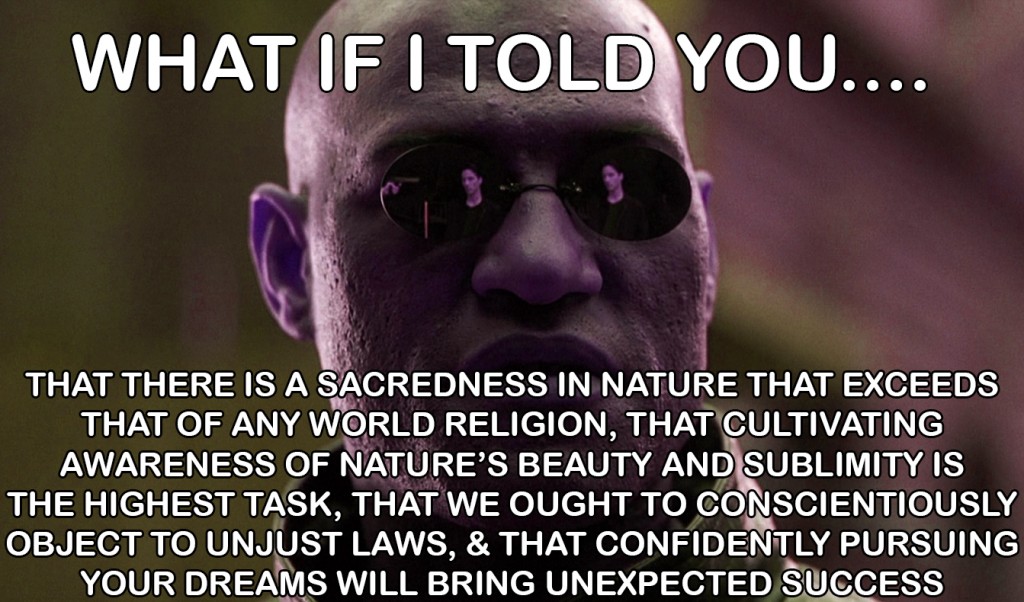
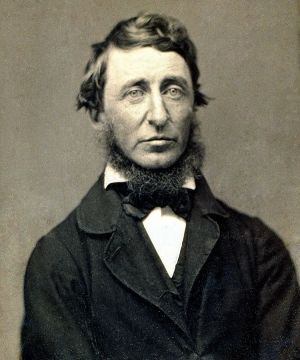 Henry David Thoreau was an American philosopher who is most often remembered for his experiment in simple living in which he spent two years living in a small cabin on Walden Pond, secluded from society.
Henry David Thoreau was an American philosopher who is most often remembered for his experiment in simple living in which he spent two years living in a small cabin on Walden Pond, secluded from society.
Thoreau was one of the great and original American naturalists, which is apparent in his writings. He was preoccupied for much of his life with the idea that this world contains the sacred and the divine, and that our principal task is to cultivate an awareness of the beauty and sublimity all around us. He also thought we ought to disobey unjust laws, and his ideas have been influential in the domain of political theory.
 For more on Thoreau, I recommend:
For more on Thoreau, I recommend:
- reading his book, Walden; or, Life in the Woods, which documents Thoreau’s experiment at Walden Pond and is really quite accessible and wonderful
- reading the pages about him on Wikipedia and the Stanford Encyclopedia of Philosophy
- watching the School of Life’s introduction to Thoreau
- reading his classic essay, Civil Disobedience
3. Friedrich Nietzsche
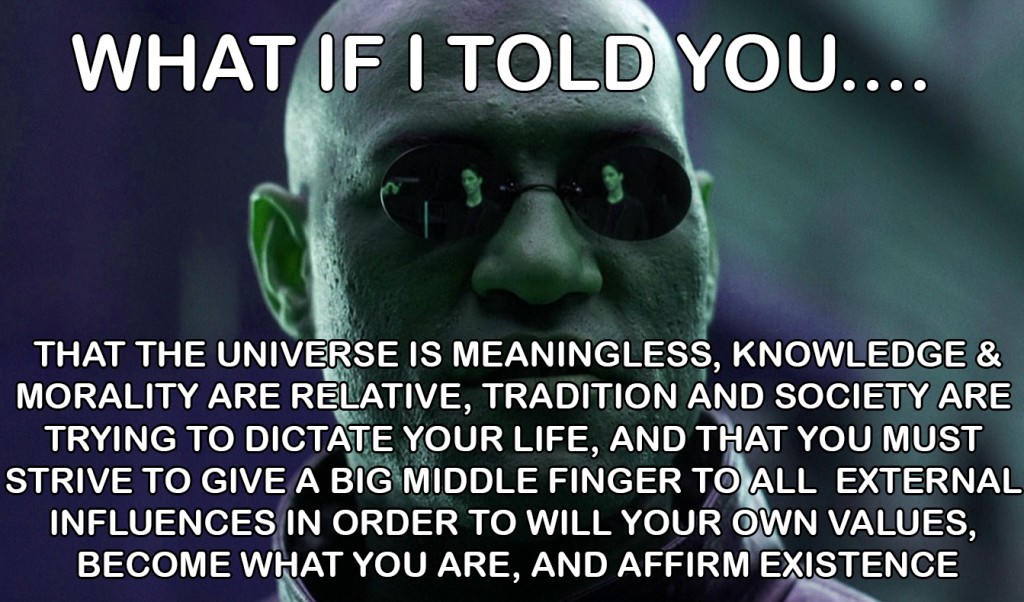
 Friedrich Nietzsche was a notorious German existentialist philosopher who more or less disagreed with everyone who had come before him. He argued that existence had no inherent meaning, that humans could not gain objective knowledge, and that morality was always relative to some arbitrary set of human values.
Friedrich Nietzsche was a notorious German existentialist philosopher who more or less disagreed with everyone who had come before him. He argued that existence had no inherent meaning, that humans could not gain objective knowledge, and that morality was always relative to some arbitrary set of human values.
If there’s one philosopher who can make you question everything and probably make you pretty upset, it’s Nietzsche. That’s probably why he’s tantalized rebellious young philosophy majors for so long. Nietzsche’s views might sound bleak, but ultimately, he was a deeply passionate man who felt that in spite of our existential predicament, we ought to create our own values, affirm existence, and learn to love our fate. Honestly, he’s one of my favorite philosophers.
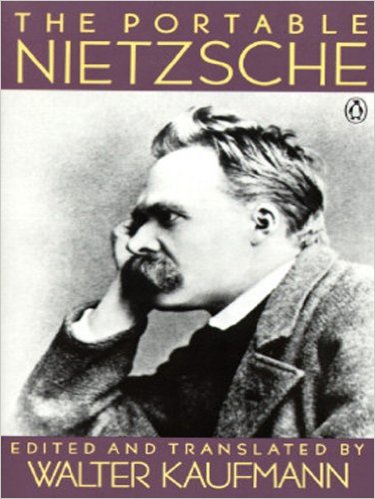 For more on Nietzsche, I recommend:
For more on Nietzsche, I recommend:
- perusing The Portable Nietzsche (the Walter Kaufmann translation), which contains several of his books in full, as well as great passages and snippets from his other books and letters
- reading the pages about him on Wikipedia and the Stanford Encyclopedia of Philosophy
- watching the School of Life’s introduction to Nietzsche and 8-Bit Philosophy’s introduction to Nietzsche
- reading through the many hilarious/educational comics on Nietzsche over at Existential Comics
4. Karl Marx
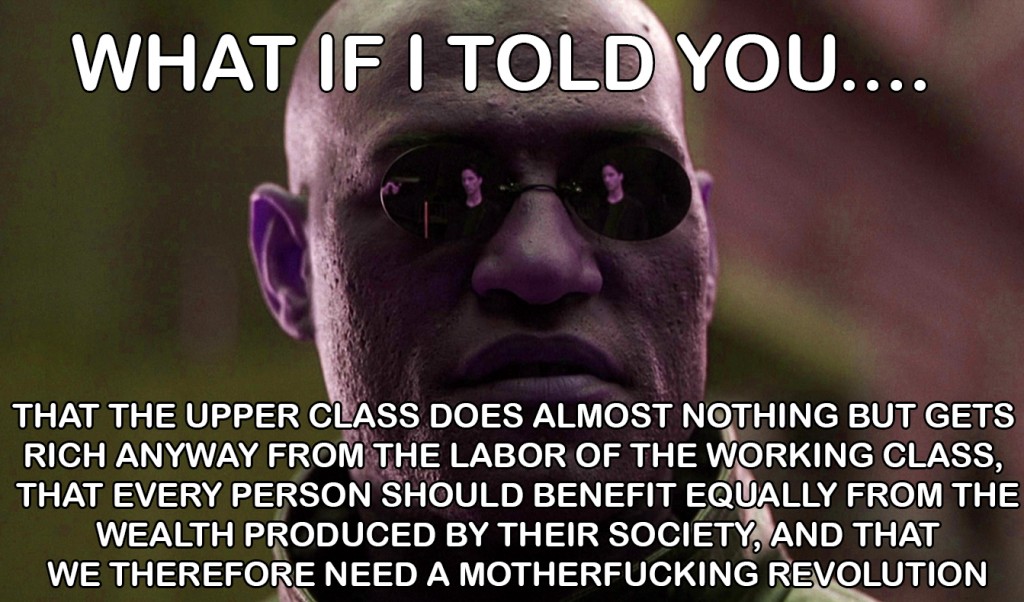
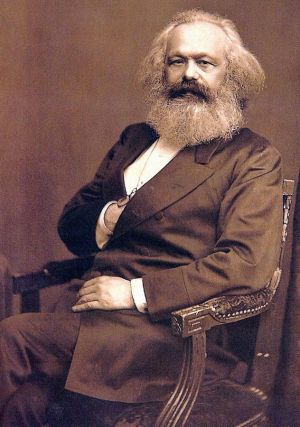 Karl Marx is of course an extremely famous and well-known philosopher, but in my experience, most people just associate him with Communism (usually without understanding what Communism even is) and dismiss him as the father of a failed ideology. But Marx was actually an incredibly brilliant dude.
Karl Marx is of course an extremely famous and well-known philosopher, but in my experience, most people just associate him with Communism (usually without understanding what Communism even is) and dismiss him as the father of a failed ideology. But Marx was actually an incredibly brilliant dude.
He recognized that the capitalist/Bourgeois class lived lives of sloth and decadence while passively benefiting from the hard labor of the working/Proletariat class. And he thought that was bullshit and needed to end because he felt that everyone in a society should have equal ownership of the “means of production”—the technology or labor that produces the society’s wealth.
Conveniently, he saw history as a process moving through various economic models, characterized by class struggle, and ultimately culminating in communism. More than anything else, Marx was someone who believed in the equality of all people and wanted to change the world to reflect that truth.
 For more on Marx, I recommend:
For more on Marx, I recommend:
- reading his and Frederick Engels’ book, The Communist Manifesto
- reading the pages about him on Wikipedia and the Stanford Encyclopedia of Philosophy
- watching the School of Life’s introduction to Marx
- reading the many marvelous comics about Marx on Existential Comics
5. Simone de Beauvoir
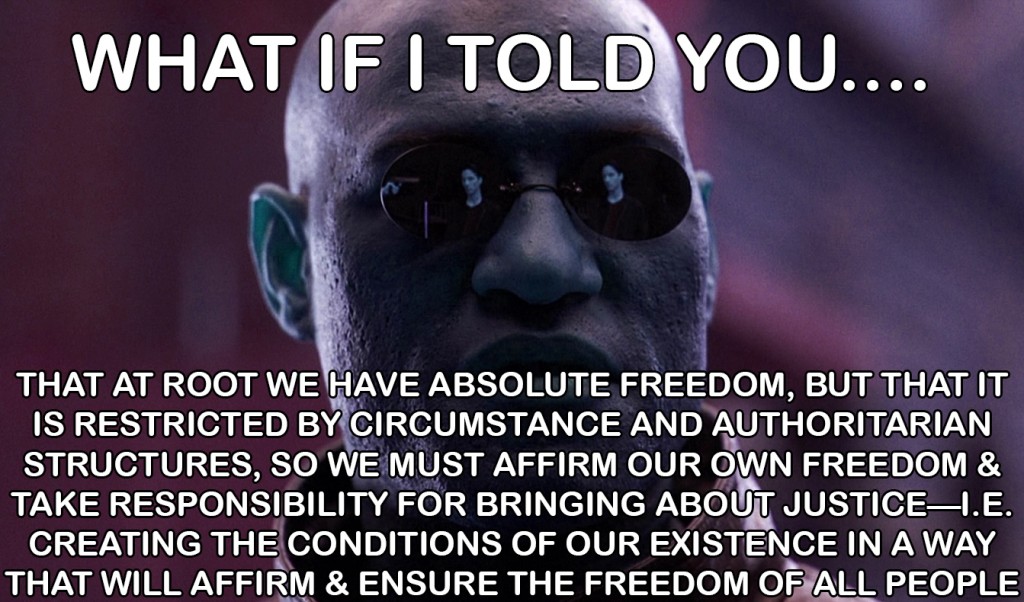
 Simone de Beauvoir was a French existentialist (I’m showing the existentialists a disproportionate amount of love today, I know, deal with it) who didn’t actually conceive of herself as a philosopher in her own right. She felt that her work was more or less an extension or application of the work of Jean-Paul Sartre.
Simone de Beauvoir was a French existentialist (I’m showing the existentialists a disproportionate amount of love today, I know, deal with it) who didn’t actually conceive of herself as a philosopher in her own right. She felt that her work was more or less an extension or application of the work of Jean-Paul Sartre.
Nonetheless, as time has gone on, de Beauvoir has come to be recognized (rightfully, most think) as a philosopher in her own right. She was mostly concerned with ethics, pointing out that if philosophers conceived of their work as being an intellectual exercise in a vacuum, they were ignoring their ethical responsibility to the world around them.
She felt, like Sartre, that at root everyone has absolute freedom to act, but that this freedom is restricted for many people by circumstance, authoritarian governments, etc. She felt it was everyone’s duty to contribute to the creation of a world in which all people could be absolutely free.
 For more on de Beauvoir, I recommend:
For more on de Beauvoir, I recommend:
- reading her book, The Second Sex
- reading the pages about her on Wikipedia and the Stanford Encyclopedia of Philosophy
- reading through the many spectacular comics involving de Beauvoir on Existential Comics
Conclusion
Let me emphasize once more that I realize I have not done justice to the complex worldviews of these philosophers.
My intention here was to give you some kind of a basic idea/mental model of what these philosophers were about, in hopes of sparking interest and giving you a launching-off point to delve into further study of philosophy.
Hopefully you found this to be both entertaining and educational.
Follow Refine The Mind on Twitter and Facebook for daily quotations from philosophers, artists, scientists, and more.
This post was originally published at HighExistence.
About Jordan Bates
Jordan Bates is a Lover of God, healer, mentor of leaders, writer, and music maker. The best way to keep up with his work is to join nearly 7,000 people who read his Substack newsletter.


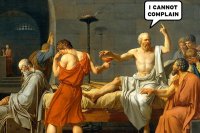


Thanks, Jordan.
Just need to add these to my ever-growing list of books I need to read!
This is a excellent list.